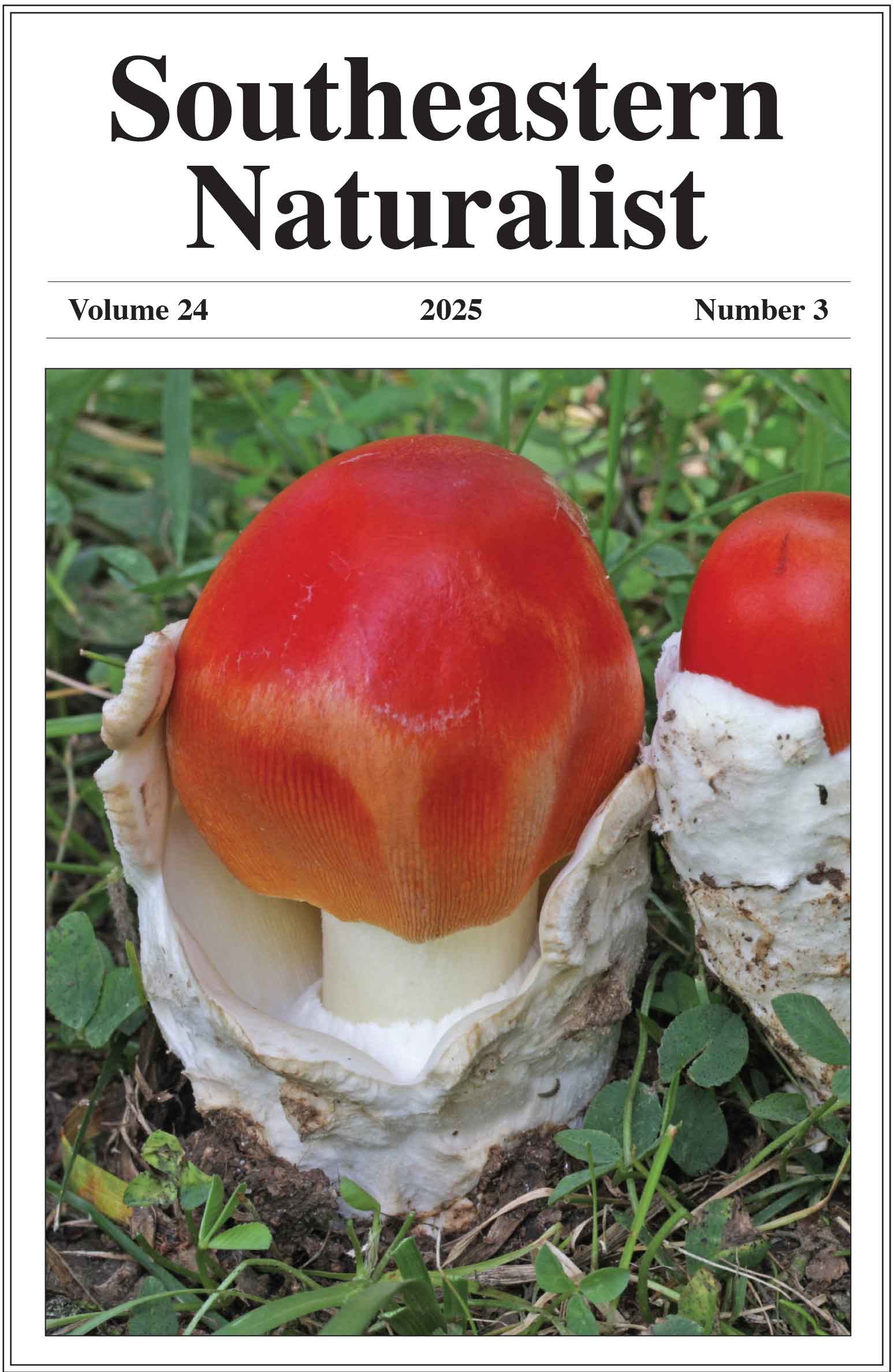Amanita angelica sp. nov., a New Species in Section Caesareae from the Southeastern United States
P. Brandon Matheny1,*, Alisha Millican2, and Logan Borosch3
1Department of Ecology and Evolutionary Biology, University of Tennessee, Knoxville, TN 37996-1610. 2University of West Alabama Herbarium, Livingston, AL 35470. 3Laurentian University, Sudbury, ON, P3E 2C6, Canada. *Corresponding author.
Southeastern Naturalist, Volume 24, Issue 3 (2025): 306–314
First published early online: 8 September 2025
Abstract
This study describes a new species in Amanita sect. Caesareae from Quercus (oak) habitats throughout much of the southeastern US. Amanita angelica sp. nov. is distinguished morphologically from others in the section by the combination of the scarlet red pileus that fades to tawny at the center and light yellow towards the margin, the light cream-colored lamellae (not yellow), the yellow annulus and white- to yellowish-tinged stipe, and the white volva that becomes noticeably gray in patchy areas. An ITS phylogeny supports the unique phylogenetic placement of A. angelica where it is nested in a strongly supported clade including at least 10 other species of Amanita sect. Caesareae. The phylogeny supports the distinction of A. angelica apart from other named eastern North American species such as A. arkansana and A. jacksonii.
![]() Download Full-text pdf (Accessible only to subscribers. To subscribe click here.)
Download Full-text pdf (Accessible only to subscribers. To subscribe click here.)
Access Journal Content
Open access browsing of table of contents and abstract pages. Full text pdfs available for download for subscribers.
Issue-in-Progress: Vol. 24( 4) ... early view
Check out SENA's latest Monograph and current Special Issue in progress:













 The Southeastern Naturalist is a peer-reviewed journal that covers all aspects of natural history within the southeastern United States. We welcome research articles, summary review papers, and observational notes.
The Southeastern Naturalist is a peer-reviewed journal that covers all aspects of natural history within the southeastern United States. We welcome research articles, summary review papers, and observational notes.